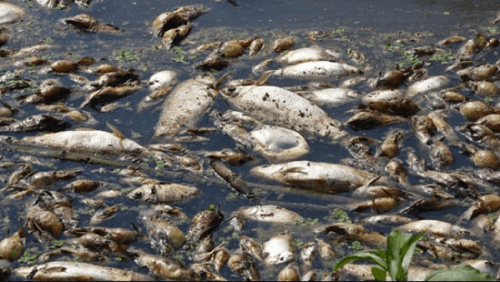The National Oil Spills Detection and Response Agency (NOSDRA) on Thursday said findings on the dead fishes along the Atlantic Ocean’s coastline indicated high levels of toxicity caused by wastes discharge.
The agency noted that the discharge of toxic materials into the Atlantic may have come from land as the wastes from domestic and industrial sources often emptied into the water body.
NOSDRA had on April 22 said it was coordinating a multi-agency investigation aimed at unravelling the cause of the reported massive deaths of fishes within the nation’s territorial waters.
Director-General of NOSDRA, Idris Musa, in a statement said that the high toxicity of the dead fishes and water samples was caused by pollution from heavy metals from industrial and domestic wastes.
He said that relevant government agencies, which have mandates on the marine environment collaborated with NOSDRA on the study.
He said, “The results of the laboratory tests were perused, and we make explanation on the parameters of concerns that were analysed for the purpose of clarity and understanding.
“As earlier mentioned, the findings did not show hydrocarbons (oil) as the possible cause of the death of the fishes.
“In the course of the analyses, Total Petroleum Hydrocarbons, Polycyclic Aromatic Hydrocarbon, Benzene, Toluene Ethylene and Xylene were within regulatory standard limits in water, sediments and fish tissue analyses.
“However, there were some heavy metals such as cadmium, chromium copper, zinc and iron that exceeded regulatory standard limits in the coastlines of the three states – Delta, Bayelsa and Rivers.”
The NOSDRA DG noted that the plausible causes could partially be attributable to other human related pollution activities, which are probably land based.
He recommended that the country should pay more attention to the activities of those illegally carrying out fishing in the country’s territorial waters to guard against possible dumping of wastes as well as unwanted aquatic species.
